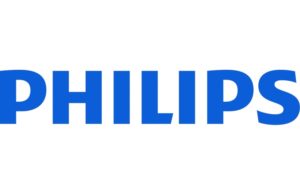 The FDA said it has requested additional safety testing on the material used to repair Royal Philips (NYSE:PHG) sleep therapy devices recalled for foam that could harm patients using them.
The FDA said it has requested additional safety testing on the material used to repair Royal Philips (NYSE:PHG) sleep therapy devices recalled for foam that could harm patients using them.
The Class I recall that started in June covers more than 15 million devices, after hundreds of complaints and more than 100 injuries from polyester-based polyurethane (PE-PUR) sound abatement foam that broke down, allowing foam and chemicals to potentially enter the device’s air pathway and cause health problems for users.
On Friday, the FDA said that upon inspection of a Philips Respironics manufacturing facility used to make replacement foam for the recalled devices, it learned that the silicon-based product failed a safety test for the release of volatile organic compounds (VOCs). That test was conducted on a similar device sold outside the U.S.
“The FDA is aware that patients have already received devices with silicone-based foam as part of the repair and replace program,” the agency said in a news release. “At this time, the agency does not have sufficient information to conclude whether the silicone-based foam being used in the repaired devices poses any risk to patients in the U.S.”
A partially redacted FDA inspection report names formaldehyde as a VOC that exceeded limits during testing of a DreamStation 1 CPAP in 2019. More recently, an A Series CPAP containing the silcone foam failed VOC testing in August 2021, but the report’s redactions hide the number of compounds of concern (due to carcinogenic/mutagenic properties) that were identified and confirmed.
The FDA said it does not recommend patients stop using devices that have been through the repair-and-replace program, based on an overall benefit-risk assessment that concluded patients discontinuing use of one of these devices may be more harmful to their health and quality of life than potential effects from the replacement foam. The FDA said it will share the results of the independent testing as soon as they are available.
The FDA reiterated its guidance for patients using a recalled device that has not been repaired and replaced, telling them to consult with their health care provider if they have questions or concerns to determine whether they should continue using the device, switch to another product or stop use.
“We will work closely with the FDA to clarify and follow up on the inspectional findings and its recent requests related to comprehensive testing,” Royal Philips CEO Frans van Houten said in a news release. “Until we have concluded these discussions, we are not able to publicly provide further details on these responses.”
Philips stopped taking new sleep therapy orders while working on the recall, offering competitor ResMed (NYSE:RMD) an opening that has been limited by supply chain challenges.
Devices involved in the Philips recall include:
- Continuous non-life-supporting ventilator devices including the DreamStation ASV, DreamStation ST, AVAPS, SystemOne ASV4, C-Series ASV, C-Series S/T and AVAPS, OmniLab Advanced+
- In-facility continuous ventilator devices including the Philips Respironics E30 with humidifier
- Noncontinuous ventilators including the SystemOne (Q-Series), DreamStation, DreamStation Go, Dorma 400, Dorma 500, and REMstar SE Auto)
- Mechanical ventilation devices including the Trilogy 100, Trilogy 200, Garbin Plus, Aeris, LifeVent 200, BiPAP V30, BiPAP A30/Hybrid/A40